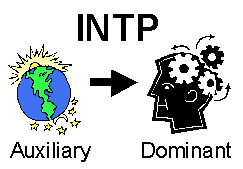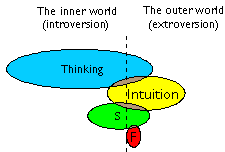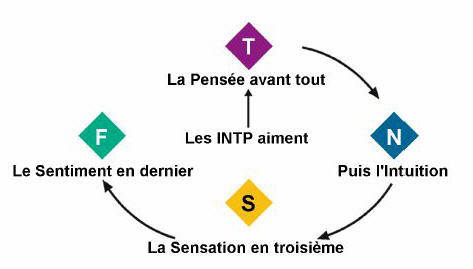MBTI est l'indicateur psychologique le plus utilisé au monde, il est universellement reconnu comme l'un des tests de personnalité les plus fiables et les plus pertinents. Il vous aide à déterminer quel est votre type de personnalité (il en existe 16), et comment vous fonctionnez. Il vous permet alors d'identifier vos forces et vos faiblesses.
Il a pour intérêt de cerner la personnalité de chacun autour de plusieurs axes:
- Fonction énergie : Introvertie (I) / Extravertie (E)
- Fonction de recueil des informations : Recueil d'information par la sensation (S) / l'intuition (N)
- Fonction de prise de décision : Décision par la logique (T) / la valeur subjective accordée aux choses (F)
- Fonction de relation à l'environnement : orienté perception (P) avec un goût pour le recueil de l’information ou de jugement (J) avec un goût pour la prise de décision
Comment ne pas rater votre test et avoir de vrais bons résultats?
Comme tout test de personnalité, vous devez le faire avec l'esprit ouvert et sans chercher à en orienter les résultats.
Ce qu'il faut pas faire :
La pire erreur que vous puissiez faire est d'essayer de déterminer votre profil vous-même, en lisant les descriptions (parfois approximatives ou mal traduites) des différents profils : pour des tas de raisons, votre jugement serait forcément faussé, et vos résultats seraient biaisés car trop subjectifs. Le seul résultat qui compte est le résultat objectif d'un test passé correctement.
Ce qu'il faut faire :
1) prendre le temps de bien réfléchir aux questions
2) repondre honnêtement ce qui est la réalité pour vous, et non ce que vous voudriez être vrai pour vous, sans quoi vous faussez le test et ses résultats.
3) passer le test à plusieurs reprises, sur plusieurs sites différents pour en confirmer les résultats, et éliminer les anomalies liées à votre humeur et à votre état de fatigue du moment.
J'ajouterais qu'il faut contextualiser le résultat du MBTI : A deux période de vie, une personne peut sembler avoir deux profils différents. Il peut aussi nous permettre de se rendre compte de certains traits de caractère qu'il peut être intéressant de changer. Le profil Myers Briggs n'est donc pas immuable ; c'est un outil qu'il faut savoir utiliser.
Le test en francais
Le test en francais mais en auto positionnement
Le test en anglais
Une autre version en anglais
Les résultats :
Le resultat est un type formé de 4 lettres : E ou I , S ou N , T ou F , J ou P.
Il s'agit, pour chaque critère, de préférences, un peu comme droitier ou gaucher. On sait faire les deux, mais on est habitué à utiliser un côté mieux que l'autre.
description des type en anglais
Pareil
les differents metier selon les differents types

Pour ma part, je suis INTJ à tendance INTP. Et je vous nique tous.













 )
)






